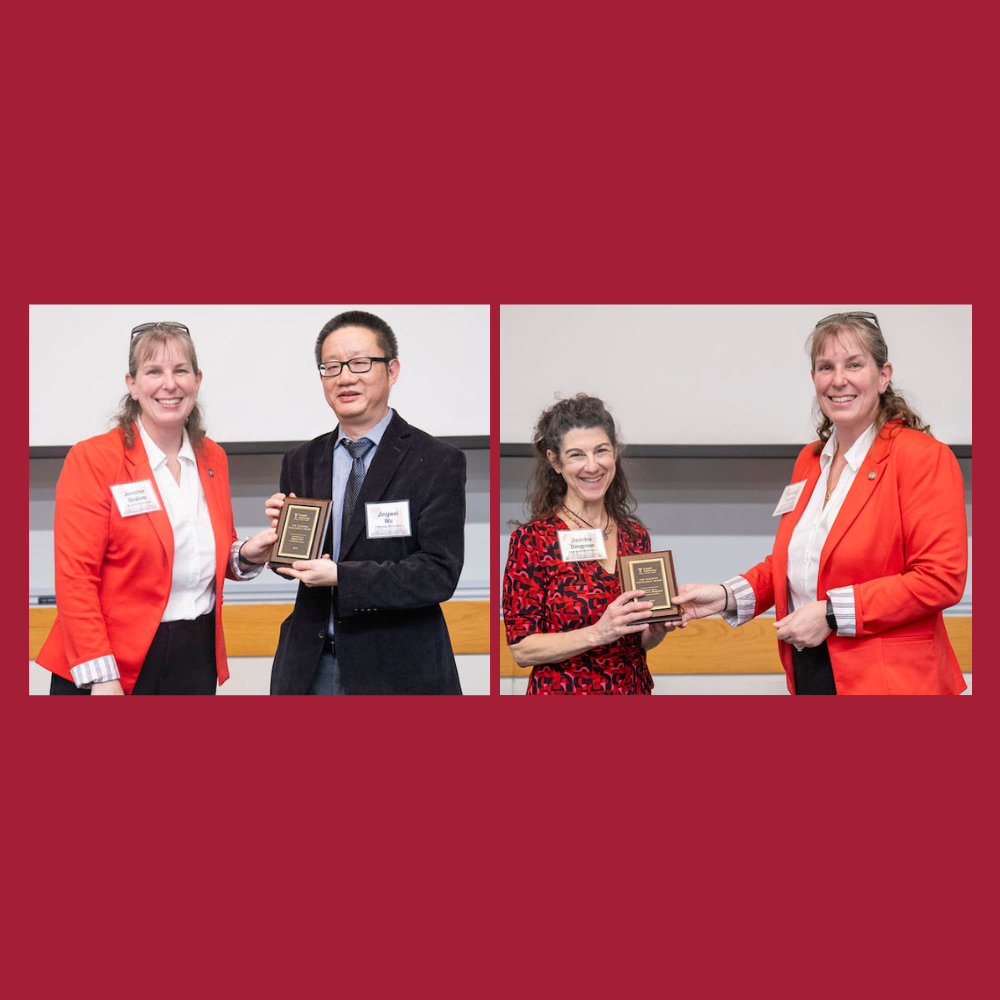Jingwei Wu and Deirdre Dingman have been named the 2024 recipients of the College of Public Health Teaching Excellence Award and were recognized at the College of Public Health Teaching Symposium on February 16. Recipients are evaluated based on submitted course materials, personal statements, peer evaluations, letters from their students, and nominating letters from their department chairs.
Wu, associate professor in the Department of Epidemiology and Biostatistics, has independently developed and taught four graduate-level biostatistics courses, preparing 850 students in biostatistical techniques and their practical applications. Teaching a difficult quantitative subject, he encourages students to apply biostatistical methods to health topics they discover and care about, and helps students transform coursework presentations into publishable papers and actionable projects.
“I get the most satisfaction inspiring my students to become independent researchers or collective contributors,” Wu says. “I emphasize to students that public health knowledge is not static, and that their ability to understand and evaluate emerging science, to determine its relevance for their work, hinges on the capacity to adequately evaluate public health research through appropriate biostatistical methodologies. This type of engagement with what matters to the student is one component of what I believe to be one of the most important aspects of teaching–trying to inspire students to be lifelong learners.”
Wu consistently receives high feedback scores from students for his courses. He mentors students by serving on dissertation and thesis committees, as research mentor and Practicum Mentor. He has received three Temple Textbook Affordability Project grants, reflecting his commitment to providing students with customized, relevant course materials at reduced or no-cost. His Clinical Research Methods in Public Health course enrolls not only CPH students, but also medical, pharmacy and technology students interested in understanding clinical studies.
Dingman, associate professor of social and behavioral sciences, teaches undergraduate and graduate courses on topics including substance use and addiction, health communication and community-based health program planning. To these important subjects she brings a passion for the craft of teaching.
“I pay attention to the content, so that I can make it as relevant as possible to the students in the room, and then give them different ways to communicate,” she says. “Students are always talking about the inclusive environment and how they felt safe to speak in my class.” At the start of each semester, she conducts a survey to identify motivational factors that may affect each student’s learning. "They can tell me privately if there's anything going on, anything they want me to know. And in that way, I can connect with them.”
Dingman has been asked by the Center for the Advancement of Teaching to present on her teaching methods and has published on pedagogy in peer reviewed journals. As a teacher, she says she derives the greatest satisfaction from “seeing students grow and apply feedback and take assignments on as their own. I’m known for having a lot of passion. When I see that passion come back at me from the students, I find that very rewarding.”

